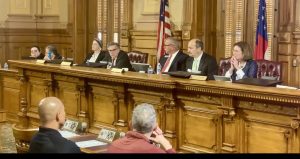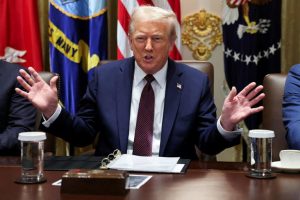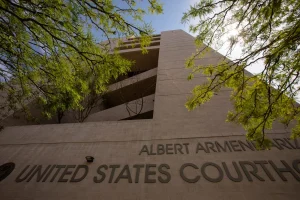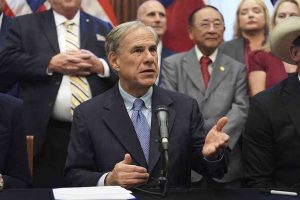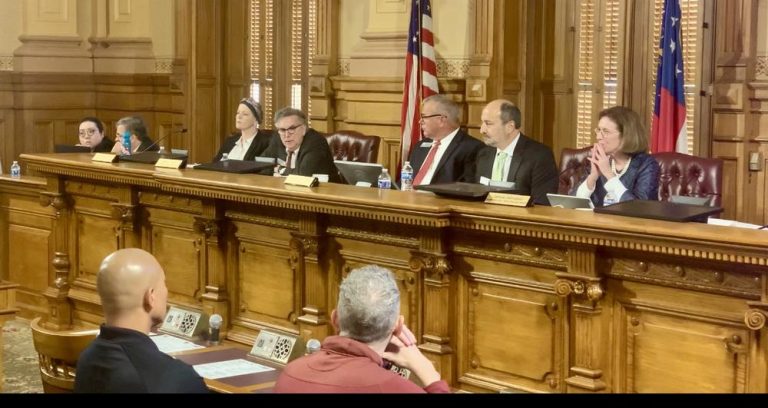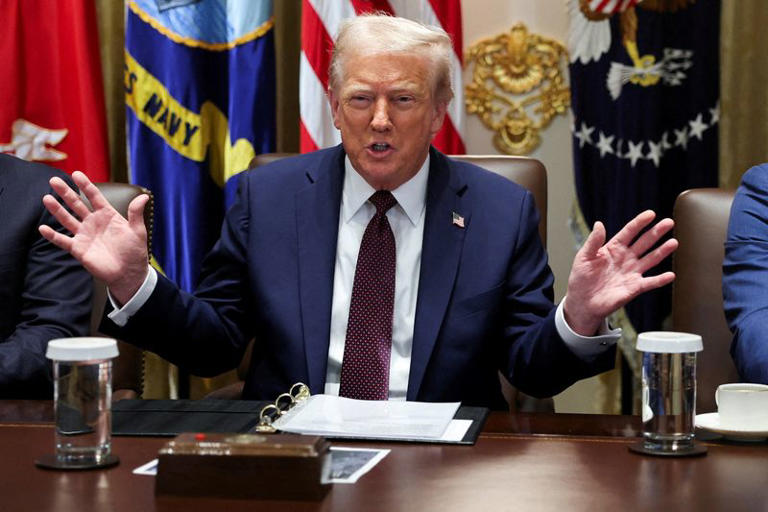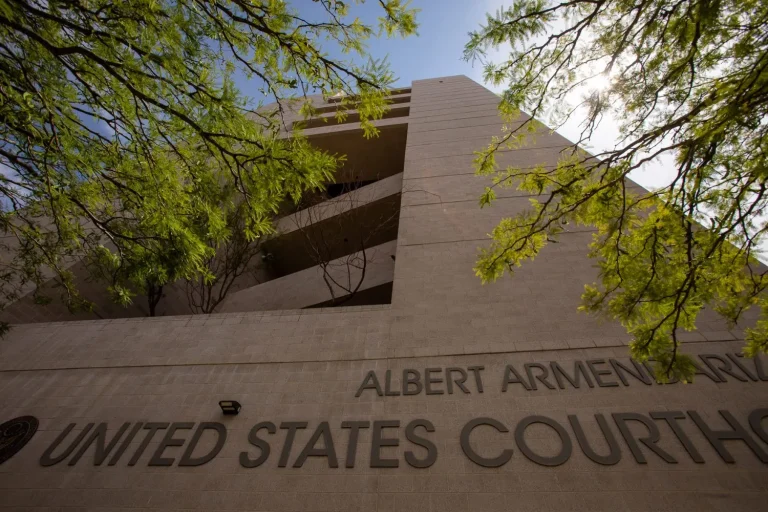January 21, 2011- Today marks the one-year anniversary of the landmark Supreme Court decision, Citizens United v. Federal Election Commission, that opened the floodgates for unlimited corporate spending on election campaigns. We speak with Bob Edgar, the president of Common Cause, which has filed a petition with the U.S. Department of Justice urging it to investigate whether Justices Antonin Scalia and Clarence Thomas should have recused themselves from the case last year because of a conflict of interest.
JUAN GONZALEZ: Today marks the one-year anniversary of the landmark Supreme Court decision, Citizens United v. Federal Election Commission. The ruling lifted a 63-year-old ban prohibiting corporations, trade associations and unions from spending unlimited amounts of money on political advocacy. A number of national and local organizations are planning rallies across the country today to protest the decision.
On Thursday, the watchdog group Common Cause filed a petition with the Justice Department urging it to investigate whether Justices Antonin Scalia and Clarence Thomas should have recused themselves from the case last year because of a conflict of interest. Common Cause alleges that both justices were paid guests at exclusive gatherings organized by Koch Industries, where conservative business leaders and elected officials secretly strategized around elections. The justices were among those who provided the critical votes in the 5-4 ruling, a ruling that has prompted an unprecedented flood of corporate expenditures on electoral campaigns over the last year.
AMY GOODMAN: Bob Edgar is the president of Common Cause and a former congressman from Pennsylvania. He’s joining us now from Washington, D.C.
Welcome to Democracy Now! What are you doing today about Citizens United? I mean, it was handed down by the Supreme Court.
BOB EDGAR: Well, as you know, Amy, we filed a petition with the Justice Department to have them investigate Justice Scalia and Justice Thomas in terms of conflict of interest. You’ll recall that just one year ago, by a five-to-four vote, the Supreme Court, believing that corporations are people, voted to give them the ability to dip into their corporate treasuries and spend that on independent expenditures on campaigns. Over the course of this year, we’ve discovered that Justice Scalia, in 2007, and Justice Thomas, in 2008, attended a special workshop seminar sponsored by the Koch brothers, who run the second-largest private industry in the United States, and it just seemed odd to us that these two justices would have their way paid to this special conference and then, on the Citizens United case, which could have been decided on just the very narrow grounds of the issues that were brought before the Court, decided to break that open and end a ruling that had been in place for over 60 years to prevent corporations from dipping in and playing politics.
Our concern is that the Citizens United case has exponentially increased the amount of money that is being spent on campaigns. It, further, is putting corporate interests above the public’s interest, and it needs to be reversed. We’re working with groups who think that it’s possible to get a constitutional amendment. We think that’s in the long term. We’re working with others who believe that changing the makeup of the Court would help to reverse this awful decision. If Sandra Day O’Connor had still been on the Court, this decision would have been five to four in the other direction. So it’s a very narrow decision.
We think the Justice Department ought to investigate the conflict of interest. Remember that the Justice Department was on the side of the people against the final decision that came down. And Eric Holder, as a lawyer, has a responsibility to investigate conflicts of interest. If they do find that there is fire where we see smoke, then he has the responsibility of asking the Solicitor General to go to Justice Roberts, the Chief Justice of the Supreme Court, and ask them to investigate and see whether there are any remedies. And what we’re really asking is that they vacate the Citizens United decision and that Justice Scalia and Justice Thomas recuse themselves from working on that decision.
One final thing, Justice Thomas is of particular concern to us. His wife, Virginia Thomas, was the leader of something called Liberty Central. That was an organization formed to work on behalf of ultra-conservative political leaders, mostly Republicans, and she appeared in the newspaper as saying that she believed that that group could make a difference, and they could take corporate money for the first time in recent memory. We think that particular conflict of interest should have been acknowledged by Justice Thomas and that there really is an interest there where she is benefiting from something that her husband was the deciding vote on.
JUAN GONZALEZ: Well, Bob Edgar, to a lot of people, this seems like a longshot complaint that you’re filing here. What are the—currently, the regulations in terms of among federal judges, in terms of conflicts of interest and recusing themselves from particular cases, as far as you know? And who monitors that?
BOB EDGAR: Well, unfortunately, the justices monitor their own behavior, and there are not clear procedures. If you’re sitting on a regular federal bench, there are rules and regulations about recusing oneself. But at the Supreme Court level, they sometimes choose to ignore that. I’m very proud of Justice Kagan, who has recused herself on issues that she was only narrowly related to because she was the Solicitor General. And there are instances where the justices have stepped forward and have been courageous and voluntarily recused themselves.

